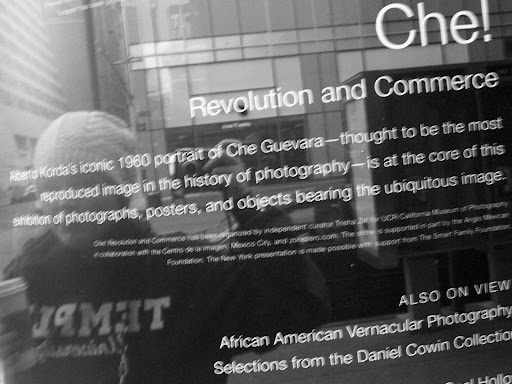Functionality is invisible here. There is only beauty and light. A doorway is no longer something to walk through as if with some purpose. It is a question. What is on the other side? What does it mean to have a doorway that leads to nowhere? These archetectural details are symbols of the invisble.




An excerpt from Michel Foucault's essay entitled "Of Other Spaces," (1967) Heterotopias.
The great obsession of the nineteenth century was, as we know, history: with its themes of development and of suspension, of crisis, and cycle, themes of the ever-accumulating past, with its great preponderance of dead men and the menacing glaciation of the world.
We are at a moment, I believe, when our experience of the world is less that of a long life developing through time than that of a network that connects points and intersects with its own skein...it does involve a certain manner of dealing with what we call time and what we call history.
One could say, by way of retracing this history of space very roughly, that in the Middle Ages there was a hierarchic ensemble of places: sacred places and profane places: protected places and open, exposed places: urban places and rural places (all of these concern the real life of men).
And perhaps our life is still governed by a certain number of oppositions that remain inviolable, that our institutions and practices have not yet dared to break down. These are oppositions that we regard as simple givens: for example between private space and public space, between family space and social space, between cultural space and useful space, between the space of leisure and the space of work. All these are still nurtured by the hidden presence of the sacred.
The space in which we live, which draws us out of ourselves, in which the erosion of our lives, our time and our history occurs, the space that claws and gnaws at us, is also, in itself, a heterogeneous space. In other words, we do not live in a kind of void, inside of which we could place individuals and things. We do not live inside a void that could be colored with diverse shades of light. We live inside a set of relations that delineates sites which are irreducible to one another and absolutely not superimposable on one another.
What is Foucault saying here that I could take and make my own? What is he saying that carries cultural weight in Rome? Let's start with history and the "ever accumulating past".
I've chosen history as my invisible city. Rome is full of it. You cannot take a trip to the supermercato without bumping into something ancient and mystical. Even when there is no real mystery, we create it. Romans, on the other hand, live among history as if it wasn't there at all. It's less my invisible city as it is theirs and in order to see it (or should I say, see it without looking for it or actually ever REALLY seeing it), I would need to become invisible myself. I would need to become a fleneur: a person who strolls while thinking and thus, moves through the urban landscape. So I am the new fleneur, strolling through personal and public spaces, which I have started to map, in detail. I expect many of these spaces to overlap and intersect and parallel. I expect these spaces to become typologies for conceptual spaces yet to come.
































